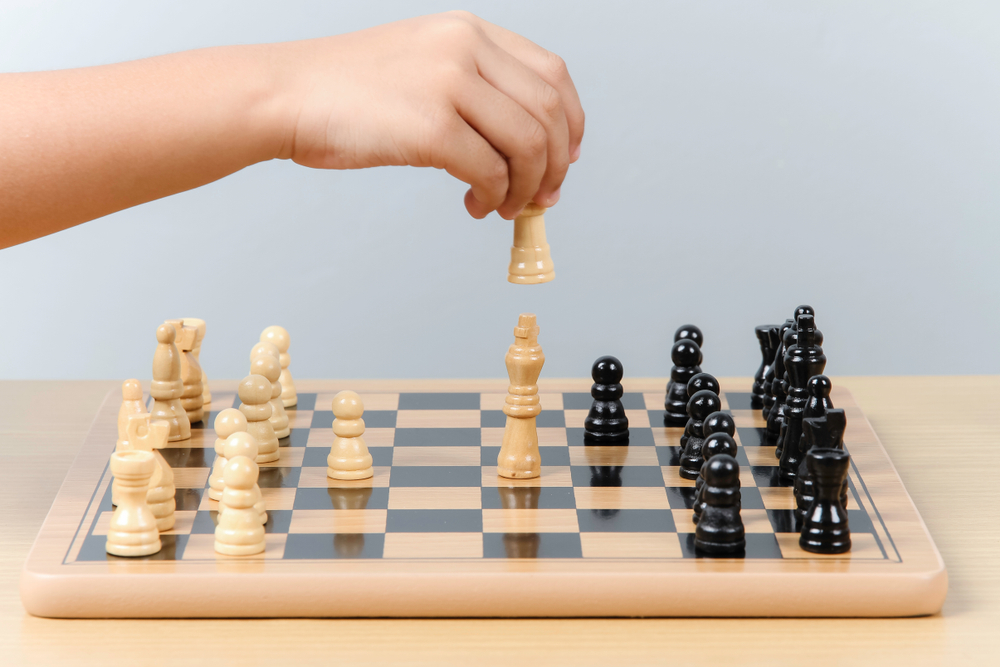5 Strategies for Developing Strong Working Memory in Children
Feb. 10, 2022
What is Working Memory?
Working memory is the ability to hold information in your mind while using it for thinking or reasoning. In other words, working memory is a collection of systems that allow us to keep our thoughts going simultaneously, the process of holding and manipulating information in our minds. It is the ability to store information that we need right now and not get distracted by other things. It allows us to work on a problem, solve novel problems, remember what we are doing, and pay attention. The cognitive workspace where we manipulate data and calculate equations is utilized to plan and execute an activity.
Why Working Memory Is Important
The brain is constantly changing, even in adulthood. Neuroplasticity allows us to alter specific characteristics of our cognitive processes, including working memory. The more working memory you have, the more input and information you can process. Children's working memory is smaller than adults; therefore, developing working memory in children is essential for their academic success. It’s a mental workspace that enables you to hold information in mind as you work with it. Working memory allows a person to learn and retain new information in the short term. The key is to challenge ourselves to improve and develop working memory constantly.

A working memory deficit can hurt academic abilities such as reading comprehension, writing, and math skills. Reading comprehension difficulties have been linked to verbal working memory deficits in older children. Children with weak working memory are more likely to have difficulties with arithmetic and reading than other students and may also have difficulty understanding verbal instructions. As a result, they cannot keep track of what they are expected to do.
Researchers estimate that 10 to 15 percent suffer from a lack of working memory in school-aged youngsters. They often have issues with peer social interaction; are hesitant to participate during school activities and occasionally fail to answer direct questions; have difficulty following directions; become distracted and give up on challenging projects. The most important thing to remember is a lack of working memory is not a predictor of intelligence. When researchers have examined the development of elementary school students, they discovered that early increases in working memory are predictive of subsequent mathematical success. Even IQ and achievement tests can be affected by it. However, the truth remains that we cannot compare working memory and general intelligence.
What Are Some Ways I Can Boost Working Memory Skills?
Is there anything we can do to assist our children in acquiring better working memory abilities? While kids with good working memory tend to do better in school, it is not innate. Here are a few tips to help your child strengthen this executive functioning skill:
Embrace Routines and Handle Transitions With Care
Predictability, which essentially involves the repetition of fundamental concepts, frees up working memory, allowing your youngster to concentrate on new information.
Quick or unexpected transitions can be highly distressing to a child who is not expecting it, and it’s even worse for a child with a weak working memory. We are aware that stress has a detrimental effect on executive functioning abilities. Even ordinary adults are susceptible to this when they are stressed.
You can help your child focus on the work at hand by using verbs at the beginning of your instructions. Make sure they're clear, concise, and repetitive. By using these strategies, you avoid cognitive overload and a potentially triggering situation for your little one. Help your child recognize schedule patterns and daily routines with time and our Days of the Week video song.
Break Things Down
Working memory is, first and foremost, an executive functioning skill. Children who have other problems with executive functioning often have trouble with multi-step activities or prioritizing important information. Our working memory influences our ability to learn and take in new information. When there are interruptions, a strong working memory helps us stay focused.
If your child cannot remain focused and their working memory is full of smaller tasks they must complete, they will not be able to retain anything new. This is why assisting your child, organizing the layout of the structure of an activity, and adding visual cues are helpful; this frees up their working memory to function on a higher, more complex level with novel content.

Working memory is also related to linguistic abilities, such as remembering the concepts conveyed in a long or difficult phrase. We can help your child work on recalling information after reading a passage here.
Use Visual Aids and Reminders (Especially if Your Child Is on Distance Learning)
Children with weaker working memory skills often rely on peers’ cues in the classroom to initiate or complete a task. These kids struggle because of the lack of clarity and structure to their day – and the added issue of missing out on checking in with peers. Externalize organizational tasks so that your child can focus on more critical issues. Create a daily visual schedule and pay attention to the design of kids worksheets or learning materials. Organize worksheets so that your child does not have to take an additional step to think about how to present their ideas. This assessment worksheet is an example of some of the quality visual aids we use in our curriculum at Kids Academy.
Supplement and Support Their Academic Abilities
One of the critical factors in developing a child’s working memory is ensuring that they have a good foundation in both reading comprehension and math. You can find high-quality resources at Kids Academy to boost their academic ability all while having fun. We have a useful worksheet on counting syllables – a great way to challenge your child to utilize multiple skills at once. We’d like your little learner to try another – handling money is another working memory booster.
Writing utilizes critical skills in executive functioning, such as working memory and attention. When children write, it might be challenging to keep track of so many thoughts. They must determine how their ideas will be organized into paragraphs and an overarching structure. This needs the recollection of pertinent information, such as genre, and familiarity with relevant content. You can help your child with these skills by using our key details and reading comprehension worksheets (among others) available on our website here.
Play Games
Although brain training and various learning games for children have been marketed as the best ways to build cognitive skills, many fail to deliver the results necessary to improve working memory. This is because they encourage kids to develop their reflexes and hand-eye coordination yet neglect those skills that require holding on to and manipulating information. The good news is that research has shown that working memory can be trained and improved through simple games, such as Hangman or card games. Check out this video explaining how to play chess for kids here, plus a fun Chess-like worksheet for newbies!

We've provided some tips on how you can help your child improve their working memory in this article today. By following these tips, you can help your child develop a better working memory so they can succeed in school and beyond. Visit Kids Academy to discover more ways to challenge your little learner!
About the author
United States, CA, Felton
References:
- https://childdevelopment.com.au/areas-of-concern/working-memory/
- https://childmind.org/article/how-to-help-kids-with-working-memory-issues/
- Kilpatrick, D., Joshi, R., & Wagner, R. (2019). Reading Development and Difficulties. Cham: Springer International Publishing.
- https://parentingscience.com/working-memory/
- Sala, G., Gobet, F. Working memory training in typically developing children: A multilevel meta-analysis. Psychon Bull Rev 27, 423–434 (2020). https://doi.org/10.3758/s13423-019-01681-y












